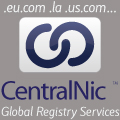RSSAC
Participation at meetings
There is an ongoing issue about how to have real and effective remote participation at ICANN meetings.
As most of you will hopefully be aware, a specific website is set up for each meeting - you can see Delhi's here: http://del.icann.org/, and Paris' at http://par.icann.org - where a webpage is provided for every meeting. That webpage contains its own chatroom; it contains the agenda, links to presentations , and, when over, a link to the transcript.
However there is still a disconnect and an advantage if you are physically in the room. As an Internet organisation trying to serve a global audience with limited resources, ICANN wants to get to the point where participation is real and possible remotely.
Add your ideas, have a discussion, review what others think at this dedicated forum to improving remote participation.
The biggest issue from experience is time. Meetings start and go extremely quickly from the perspective of someone not in the room. Often meetings happen at inappropriate times for those that wish to attend. Sometimes by the time a question raised remotely can be introduced into the conversation, the conversation has moved on. And this in itself discourages interaction.
So the question is: what can be done to fix this? Is the answer to make sure agendas are posted earlier? How can this be enforced? Should questions be accepted ahead of time? Should meetings on one topic be stretched over several days, allowing for more effective remote input?
What are the practicalities? How do you get the physical meeting to take remote input seriously? What needs to be done? ICANN is very interested in your views on this. And for that reason we have set up a forum on this site in order to help the community discuss, review, brainstorm and formulate possible solutions which ICANN will then experiment with in an effort to provide the global community with a more effective route into the organisation's work.
Add your ideas, have a discussion, review what others think at this dedicated forum to improving remote participation.
RSSAC Bylaws
Extract from ICANN Bylaws
THIS EXCERPT IS INCLUDED FOR REFERENCE REGARDING THE RSSAC ONLY. THE
FULL ICANN BY-LAWS CAN BE FOUND AT THE ICANN WEB SITE.
Notes: DNS Root Server System Advisory Committee
RSSAC,
18 March 2001, Minneapolis, USA
Present:
Notes: DNS Root Server System Advisory Committee
التاريخ:17 مارس 1999
RSSAC, 17 March
1999, Minneapolis, USA
Present:
Jun Murai WIDE/RSSAC chair m Havard Eidnes NORDUNET i
Notes: DNS Root Server System Advisory Committee
التاريخ:15 يوليو 2002RSSAC, 15 July 2002, Yokohama, Japan
The following agenda was presented:
ccTLD mtg report
CRADA report
Contrract process
CAIDA/WIDE measurement
IPv6
Members (RSSAC list) -discuss list?� Openness?Schedule
Jun Murai asked whether there were any additions or adjustments to the
agenda.� Bill Manning suggested�some discussion about openness, etc. perhaps
an rssac-discuss mailing list?Proposed Amendment 2 to Cooperative Research and Development Agreement
التاريخ:4 سبتمبر 2001Cooperative
Research & Development AgreementAmendment
2(Proposed)
DNS Root Server System Advisory Committee, SUNTEC Convention Center, Singapore
التاريخ:2 مارس 1999Agenda
- Introduction
- Background/Charter
- Members
- Issues/Tasks
- Future schedule
- Open meeting planning
Initial reasons for RSSAC
- Root Server System issues have been addressed
- in the Green Paper and White Paper process
- in the formation of ICANN.
- Root Server System Advisory Committee (RSSAC) mandated
in ICANN bylaws
- in ICANN JPA-MoU with the US Government
- Jon Postel left.
DNS Root Server System Advisory Committee
The ICANN Bylaws describe the DNS Root Server System Advisory Committee
as follows:
There shall be a DNS Root Server System Advisory Committee. The initial
chairman of the DNS Root Server System Advisory Committee shall be appointed
by the Board; subsequent chairs shall be elected by the members of the
DNS Root Server System Advisory Committee pursuant to procedures adopted
by the members. The responsibility of the Root Server System Advisory Committee
shall be to advise the Board about the operation of the root name serversModel MoU for Root Nameserver Operations
التاريخ:21 يناير 2002Draft of 21 January 2002
The following is a model memorandum of understanding for the operation of root nameservers, prepared through the work of the Root Server System Advisory Committee.
[MODEL] MEMORANDUM OF UNDERSTANDING CONCERNING
ROOT NAMESERVER OPERATION
This Memorandum of Understanding ("MOU") is entered between the Internet Corporation for Assigned Names and Numbers ("ICANN") and [name of operator's organization] ("Operator") as of [date].
Root Nameserver Year 2000 Status
التاريخ:15 يوليو 1999Root Nameserver Year 2000 Status
David Conrad, Internet Software Consortium Akira Kato, WIDE Project, University of Tokyo Bill Manning, Information Sciences Institute, USC
Introduction
Due to its fundamental design assumption of a singly rooted hierarchical
namespace, the domain name system (DNS) comprises one of the few
(logical) single points of failure within the Internet. More specifically, the
Daniel Karrenberg RIPE NCC K Mirjam Kuehne RIPE NCC
















